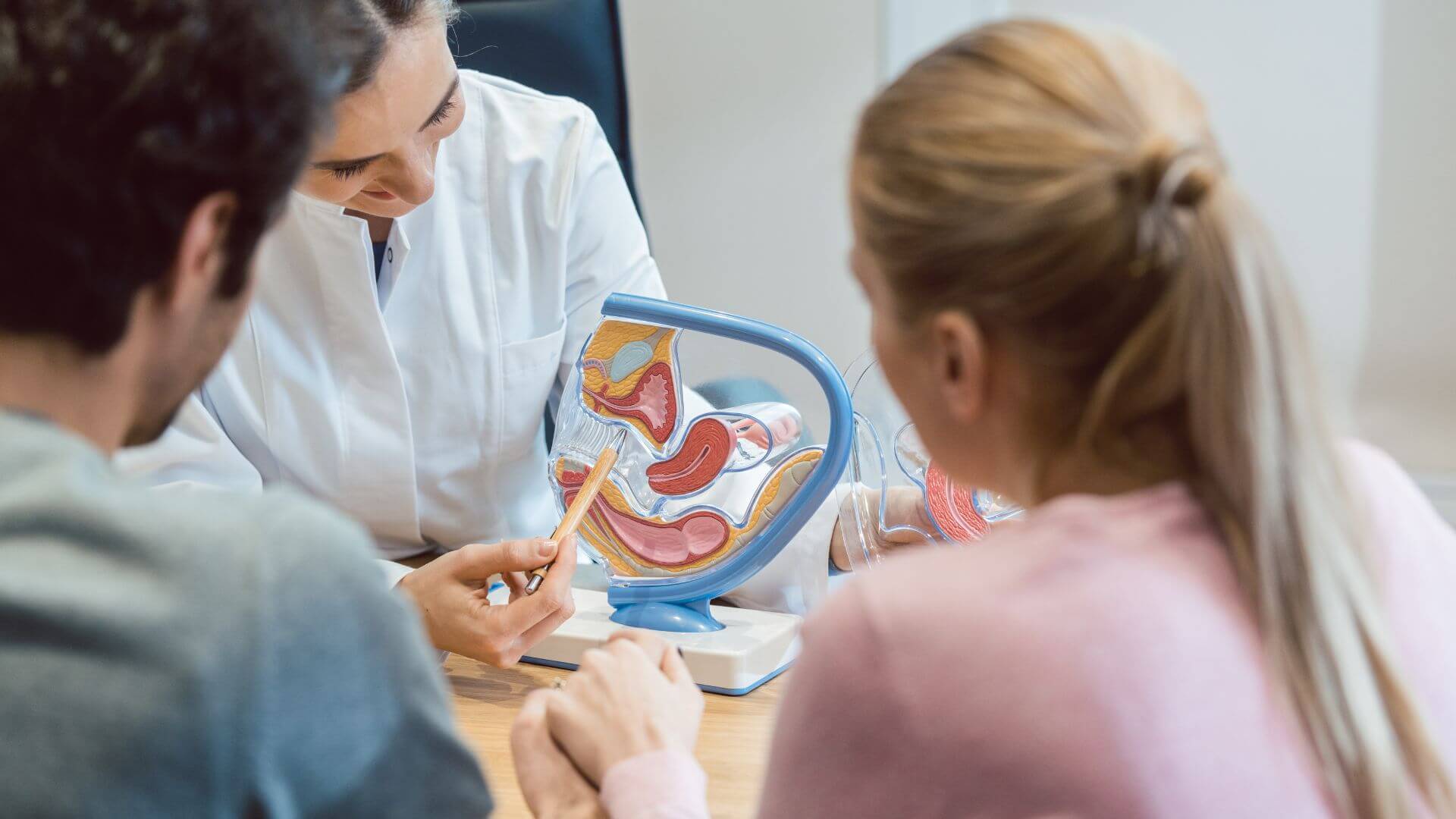
If you’re searching for information about when to consider fertility testing, then you’ve probably been trying to conceive for some time. As each month passes, your eager expectation has given way to increasing concern. And, all too often, you’re managing those feelings while oblivious friends or colleagues share their own happy news.
It’s a hard space to be in. If you haven’t conceived as quickly as you’d hoped, we’re here for you. A fertility assessment may help you understand what’s going on and plan your next steps.
What is a fertility assessment?
A fertility assessment is a medical evaluation that investigates the factors that may affect your ability to conceive.
It typically involves:
- A review of your medical and reproductive history
- Physical examinations
- Diagnostic tests, which may include blood tests, imaging or semen analysis.
The aim is to gain a clear picture of reproductive health for both partners, identify potential challenges, and guide next steps in care.
When should you consider fertility testing?
There is no single timeline that applies to everyone, but a fertility assessment may be worthwhile if you:
- Are under 35 and have been trying to conceive for 12 months without success
- Are over 35 years old and have been trying to conceive for 6 months
- Have health conditions that may affect your fertility, such as endometriosis, polycystic ovary syndrome, testicular problems or obesity
- Experience irregular menstrual cycles or absent periods, which may indicate ovulation difficulties
- Have a history of miscarriage.
If you are unsure when to test fertility, please contact us for advice or ask your GP.
Fertility testing for women
A fertility test for women may include:
- Blood tests to check hormone levels, ovarian reserve and thyroid function
- An ultrasound scan to assess ovarian health, uterine lining and identify conditions such as fibroids or polyps
- Other imaging tests (hysterosalpingography or sonohysterography) to check that your fallopian tubes are open and the uterine cavity is normal
- Minimally invasive procedures (if necessary), like a pelvic examination or laparoscopy to assess for endometriosis or pelvic scarring.
Male fertility test options
Male fertility testing is often more straightforward (sorry ladies!) and usually begins with:
- Semen analysis to measure sperm count, movement (motility), and shape (morphology)
- Blood tests to assess hormone levels that influence sperm production
- Ultrasound (in certain cases) to check for blockages or structural issues.
How long do fertility assessment results take?
Waiting for fertility results can be an anxious time. It’s normal to worry about what the tests might say and how you’ll cope.
We offer on-site ultrasounds, meaning you can complete those imaging studies relatively quickly and conveniently. However, any blood or semen tests have to be sent to the lab for analysis and it can take a few days for those results to come back.
Once your doctor receives all your test results, they’ll review the findings and invite you back for a discussion about your options and rest assured, there are many options.
Moving forward after a fertility assessment
The results of a fertility assessment guide the next steps. Options may include:
- Lifestyle changes to improve your overall health by managing your weight, reducing stress, stopping smoking and limiting alcohol use
- Medical treatments such as hormonal therapies, medication for ovulation induction or treatment of underlying health conditions
- Ultrasound to track ovulation so you can time intercourse for your fertile window
- Surgery to remove fibroids, polyps or address blockages
- Assisted reproductive techniques such as:
- In vitro fertilisation (IVF)
- Intrauterine insemination (IUI)
- Use of donor eggs or sperm.
Book your fertility assessment with us
If you’re concerned about your ability to conceive, then please book a fertility assessment with Saige Health and Wellness.
The Saige team includes skilled professionals who understand both the medical and emotional aspects of fertility. We’re here to care for you as you undergo initial tests, identify potential issues and (hopefully!) experience our collaborative midwifery care throughout your pregnancy, birth and post-natal period. Throughout it all, we aim to provide an inclusive and reassuring space to ensure you receive the care you need.




